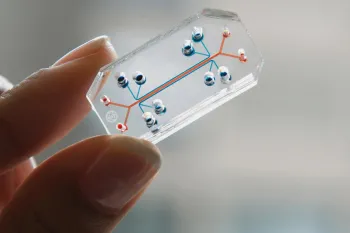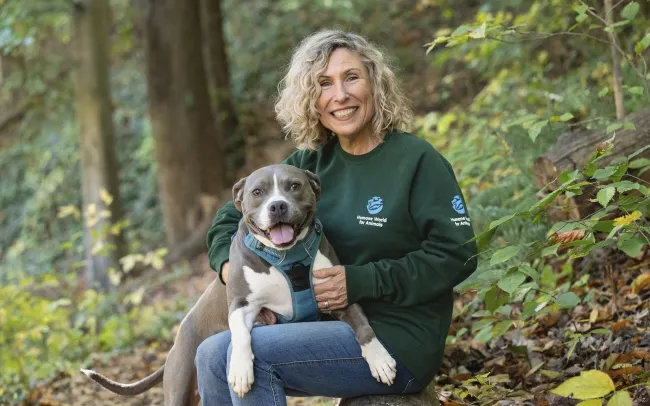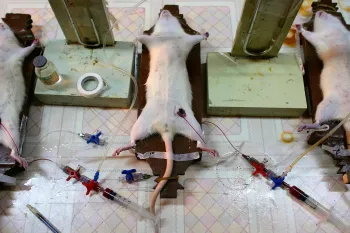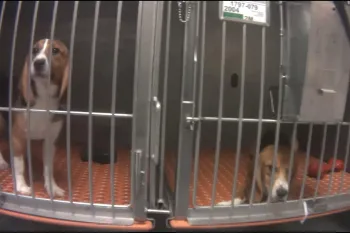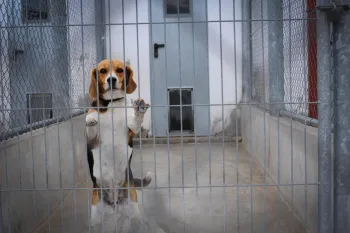Last week at the World Congress on Alternatives and Animal Use in the Life Sciences in Brazil, our Humane World for Animals team gathered with hundreds of scientists and policymakers to exchange insights on the latest global developments in phasing out animal experiments in favor of non-animal methods. As momentum builds for these innovations, new opportunities arise in advancing how research and testing are carried out worldwide.
When it comes to using animals in laboratories, a growing number of countries are working toward a more humane future in which animals no longer suffer for the sake of scientific advancement.
In the U.S. alone, over the last few months, a series of remarkable communications from the National Institutes of Health has paved the way for the use of sophisticated non-animal “human-based” techniques. These employ human data, tissues and cells to create methods like organ-on-a-chip technology, computational modeling and AI-based systems, instead of animal tests.
- In April, the NIH made the groundbreaking announcement that it would prioritize human-based research technologies and reduce animal experiments in NIH-funded research.
- In May, the agency revealed that it had shuttered the last beagle laboratory on its campus—a lab that carried out experiments on thousands of dogs.
- In July, endorsing a shift toward non-animal methods, the agency said it would “prioritize human-based technologies and models, where scientifically valid and justified,” and that “funding opportunities will indicate a special emphasis on human-based approaches.”
The NIH announcements have been matched by recent commitments from both the Food and Drug Administration and the Environmental Protection Agency. The FDA announced that it is committed to replacing animal tests for drugs with non-animal test methods that are “faster, cheaper and better at predicting human toxicity”—embracing the very reforms we urged the agency to adopt in the legal petition we submitted last year.
EPA officials have publicly indicated that they have recommitted to ending the agency’s reliance on animal tests that use mammals. We support an approach that gets that done by 2035—a goal the EPA had originally announced in 2019.
Building on this momentum, the World Congress offered an ideal moment for us to honor two major contributors to the worldwide shift toward innovative non-animal methods.
We awarded our Humane Science Innovator Award to Dr. Nicole Kleinstreuer, acting NIH deputy director for program coordination, planning and strategic initiatives. The award recognizes her leadership in developing and championing non-animal research methods. Kleinstreuer has been at the forefront of NIH’s shift toward more humane science, leading efforts within NIH as well as internationally to promote non-animal methods. Drawing upon a strong background in biomedical engineering and applied mathematics, she has applied computational modeling, artificial intelligence and high-tech toxicology to develop and implement regulatory science approaches that avoids the use of animals. This exemplifies how innovation in science can both protect animals and improve human health.
Kleinstreuer is one of several leaders working to phase out animal experiments at the federal level in the U.S. NIH director Dr. Jay Bhattacharya, FDA commissioner Dr. Martin Makary and EPA administrator Lee Zeldin have also signaled their strong commitments to adopt research and testing methods that don’t use animals and are also more accurate and effective for people. We are working to ensure these agencies have the resources they need and the continued resolve to make these forward-thinking commitments a reality.
We presented our Humane Policy Champion Award to Carlos Goulart, Secretary of Agricultural Defense, on behalf of the Brazilian Ministry of Agriculture, Livestock, and Supply for its landmark decision to allow companies to forego a veterinary vaccine test long criticized as cruel, outdated and scientifically unnecessary. Allowing companies to waive the Target Animal Batch Safety Test signals Brazil’s leadership—both in South America and globally—in embracing modern quality control measures for vaccines in line with the U.S., Europe, Japan and other major economies. By aligning regulatory practice with today’s scientific standards, this Brazilian Ministry is demonstrating that it is possible to assure product safety while eliminating obsolete animal tests.
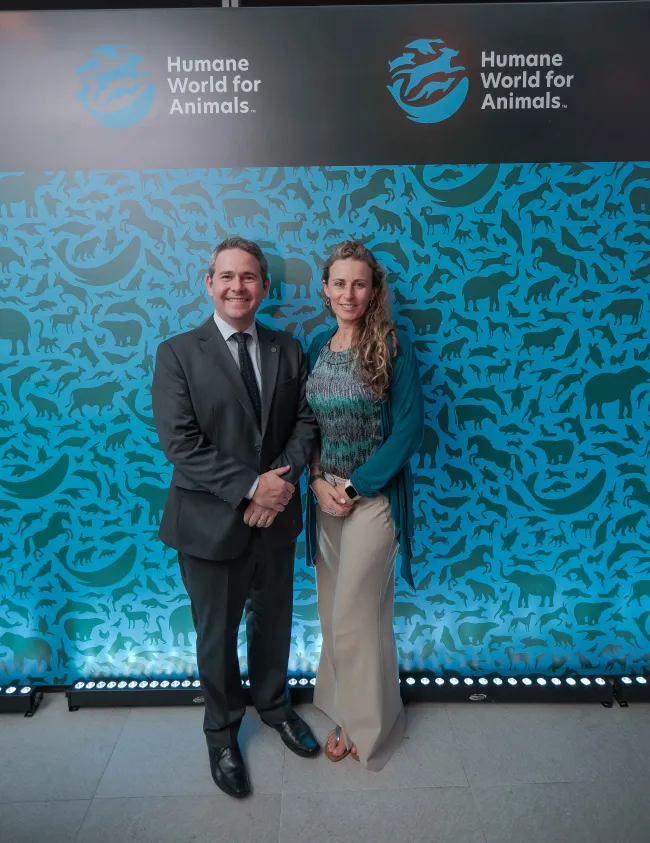
Leandro Ribeiro
In addition to presenting these awards, we co-chaired sessions and delivered numerous presentations and posters focused on non-animal science at the World Congress and showcased our ongoing efforts to phase out animal testing and research across the globe through transforming drug and chemical safety testing regulations and biomedical science funding systems. The conference also provided an opportunity to highlight how human-based methods can address public health challenges across the globe.
We’re at a turning point for humane methods—and together with scientists, policymakers and advocates around the world, we’re building a future where no animal suffers in a lab—a world in which the science we use is better aligned with our values.
Sara Amundson is president of Humane World Action Fund.
